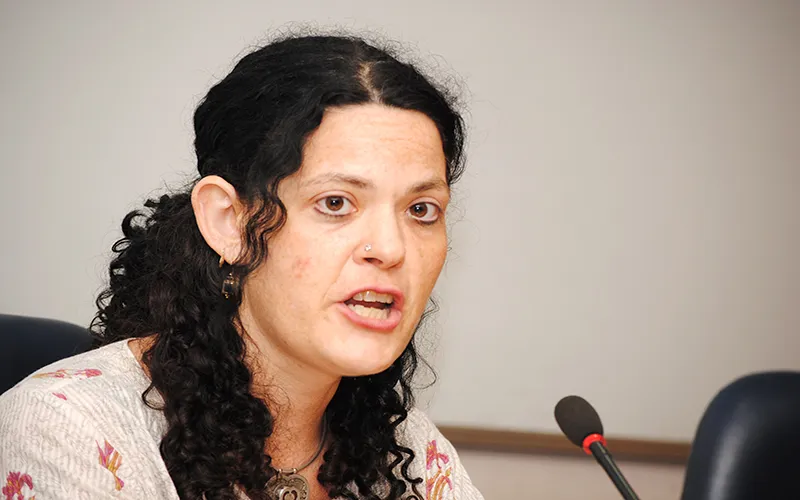The international community's increased enthusiasm about leaving Afghanistan could have an adverse impact on the human rights situation in the country, according to human rights researcher Ms Heather Barr.

The international community’s increased enthusiasm about leaving Afghanistan could have an adverse impact on the human rights situation in the country, cautioned a human rights researcher who has worked on Afghanistan for more than five years.
Delivering a talk on the ’The Future of Human Rights in Afghanistan’ at Observer Research Foundation on May 16, 2012, Ms Heather Barr, Afghanistan Researcher at the Asia division of Human Rights Watch, pointed out that there is an ’overwhelming anxiety about human rights in Kabul’. The international community appears exhausted after ten years of conflict and is keen to withdraw its troops and handover security to the Afghan government by 2014.
Ms Heather Barr discussed issues like the present environment in Kabul, the condition of women, rights abuse carried out by the local police, and India’s involvement in Afghanistan.
She also discussed the US-Afghanistan strategic agreement which seeks to end the war by 2014, but leaves ’a lot of uncertainty’ about tangible commitment in terms of reconstruction aid. The upcoming elections in the US, according to Ms Barr, have greatly influenced the current US policy of reducing its presence in Afghanistan.
Ms Heather Barr said the aid given by donor countries and the political pressure exerted by them have been important factors in improving human rights conditions in the past and their withdrawal could reverse the progress made in this important aspect of nation-building.
She said that there is a complete disregard for accountability among security forces. Afghan Police and Afghan Local Police, who were recently created and funded by the US, are involved in systematic torture, killings, sexual abuse and extortion among other forms of abuses.
She discussed at length the practice of imprisonment of women on charges of ’moral crimes’, which include running away from home alone and Zina, or sex outside marriage, despite such practices not being defined as criminal according to Afghan law. She also drew attention towards the fact that most women accused of such crimes are victims of abuse by their families or were forced into their marriages. Despite the enacting of ’Law on the Elimination of Violence against Women’ in 2009, the law has not been enforced in the majority of cases.
According to Ms Heather Barr, the situation is ’not all dark’ and progress has been made in the last decade. Millions of girls are now enrolled in school, the maternal and infant mortality rates have fallen and there is 28 percent participation of women in the Parliament. But she emphasised that a lot needs to be done as there is widespread practice of underage marriage and forced marriage while maternal mortality in Afghanistan remains the highest in the world.
Ms Heather Barr discussed at length ways in which India could help Afghanistan and urged New Delhi to encourage its ally to respect its human rights obligations. She explained that the efficacy of aid and development projects is not dependent on their quantum alone, and praised India’s development efforts as very effective.
India’s own experience with alleviating large sections of its population and building local capacities places it in a unique position to share lessons learnt with Afghanistan. She stressed on the importance of capacity-building by highlighting that while teachers have held schools under trees and inside tents, furnished school buildings without teachers have remained unused for years, she said.
Ms Heather Barr suggested that besides aid and developments, India should increase bilateral trade with Kabul and open its markets for Afghan goods. She also emphasised that ’besides providing infrastructure and taking up short term projects, India should help Afghanistan by its own past experiences in the field of women education and encourage enrolment of women in schools’. India can also provide aid to ’shelters’ in Afghanistan which are under-funded and depended on aid, she pointed out.
(This report is prepared by Chandrika Goel, Research Intern at Observer Research Foundation)
The views expressed above belong to the author(s). ORF research and analyses now available on Telegram! Click here to access our curated content — blogs, longforms and interviews.




 PREV
PREV

